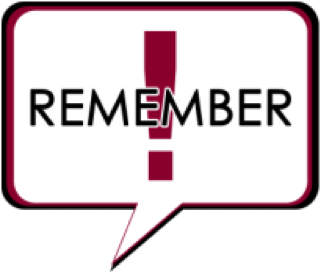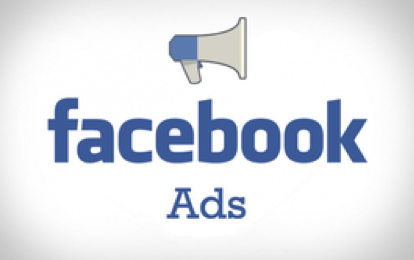It is hard not to recognize Facebook’s massive reach. Over 1.62 billion people use Facebook every day, yet many parishes resist joining or have pages that haven’t been updated since their original creation. Are you thinking about starting a page for your parish but don’t know where to start? Unsure if you should create one or what to do after you start a page? We’re here to help!
Why should a parish have a Facebook page?
The main reason most parishes join Facebook is fairly simple: their parishioners, and potential parishioners, are on Facebook. According to the Pew Research Center as of April 2019, 69% of adults are active Facebook users – and that numbers jumps to 79% for ages 18-49. For a more mature crowd as well, almost half of those over 65 use facebook on a regular basis. Facebook allows parishes to connect with their parishioners in a new way outside of Sunday Mass. It also allows people to learn more about what’s happening at the parish and find a new group or activity to join.
Use Facebook to:
One main benefit of using Facebook is the ability to create and invite people to events. This enables people to see what’s going on in the parish and to RSVP. Facebook is an easy way for parishioners to keep track of what events they would like to attend and for parishes to see who plans to come to events. While more of a next step, Facebook advertising allows parishes to target people living within their area to promote both events and the parish Facebook page. This is relatively inexpensive way to potentially reach hundreds of new people in your parish boundaries and engage them in a new way. Facebook also allows for instant updates – cancelled events, location changes, and other important announcements can be made in real time.
Use Facebook to:
- Reach new people
- Inspire the community with spiritual content
- Publicize events
- Keep your flock informed
- Be accessible to the public
- Events
- Livestreaming
- Target ads to reach more people
- Discussion
One main benefit of using Facebook is the ability to create and invite people to events. This enables people to see what’s going on in the parish and to RSVP. Facebook is an easy way for parishioners to keep track of what events they would like to attend and for parishes to see who plans to come to events. While more of a next step, Facebook advertising allows parishes to target people living within their area to promote both events and the parish Facebook page. This is relatively inexpensive way to potentially reach hundreds of new people in your parish boundaries and engage them in a new way. Facebook also allows for instant updates – cancelled events, location changes, and other important announcements can be made in real time.
Content: What should I post?
As important as it is to have a presence on Facebook, many parishes struggle to find relevant content to post consistently on their Facebook pages. Think of your Facebook page from the point of view of a parishioner or visitor - what things would be useful to see? Basic information on your “About” tab such as Mass times, locations, and contact information are vital. But what about ongoing posts? Morning and evening prayer posts may be ways to have on-going posts. Also, saints posts are the most popular on new media. How are you inviting people to use, to explore your posted content, to move beyond the media toward personal encounters?
Here are some suggestions to make your page as inviting and interactive as possible:
Tips for posting on Facebook
Here are some suggestions to make your page as inviting and interactive as possible:
Tips for posting on Facebook
- It is important to make sure your page has regular, interesting, and consistent content. The frequency of posts will vary from parish to parish, but it is important to keep it consistent - i.e. don’t post six items in one day after four days of no activity.
- Take advantage of the “Stories” feature to post quick live video messages from your pastor, notes on things happening that day, or inspirational quotes. Stories pop up at the top of people’s view and serve to keep your organization top of mind.
- Take note of what posts receive a lot of engagement. It will become easier over time to see what types of posts people are interested in seeing.
- Pictures often do better than text only posts. Videos are even better.
- Try to have a consistent voice for your posts. It's helpful to identify 2-3 people who understand your ministry and it's tone of voice in writing.
- Save time by scheduling posts in advance. Use the “Publishing Tools” section – it’s one of the menu items at the top of your page when you’re looking at it as an admin. From there, you can save your post as a draft, backdate it or schedule it out in the future.
- Facebook includes an analytics page, so you can monitor which posts are doing well, how your engagement rate is and how your page is faring overall.
What makes good posts?
|
|
|
A vital part of maintaining a Facebook page is interacting with followers.
|
Sometimes, you may have negative feedback or comments on your page. Here are a few tips (or guidelines) for handling these negative comments:
- If a comment is offending, hide the comment.
- If offensive comments persist, privately message the individual if you feel comfortable doing so.
- If you feel uncomfortable sending the person a message, Facebook gives you the option to ban that individual from your page.
- If a comment is uncomfortable, but respectful, do your best to respond in charity.
|
Facebook is free, but if you have a little budget to use on ads and boosted posts, it can go a long way. Facebook allows you to created advertisements and target them to specific zip codes, genders, age demographics, and interests so you can effectively reach your target audience. You can even set your ads to only appear on certain dates and times in someone’s newsfeed. Facebook Ads can be used for a number of uses:
|








